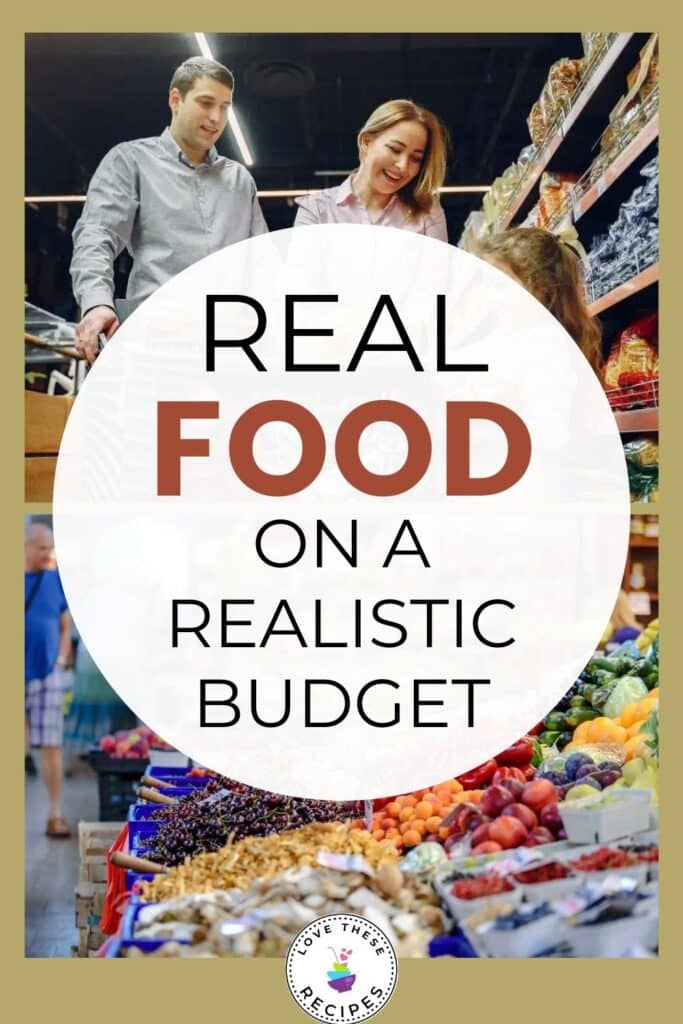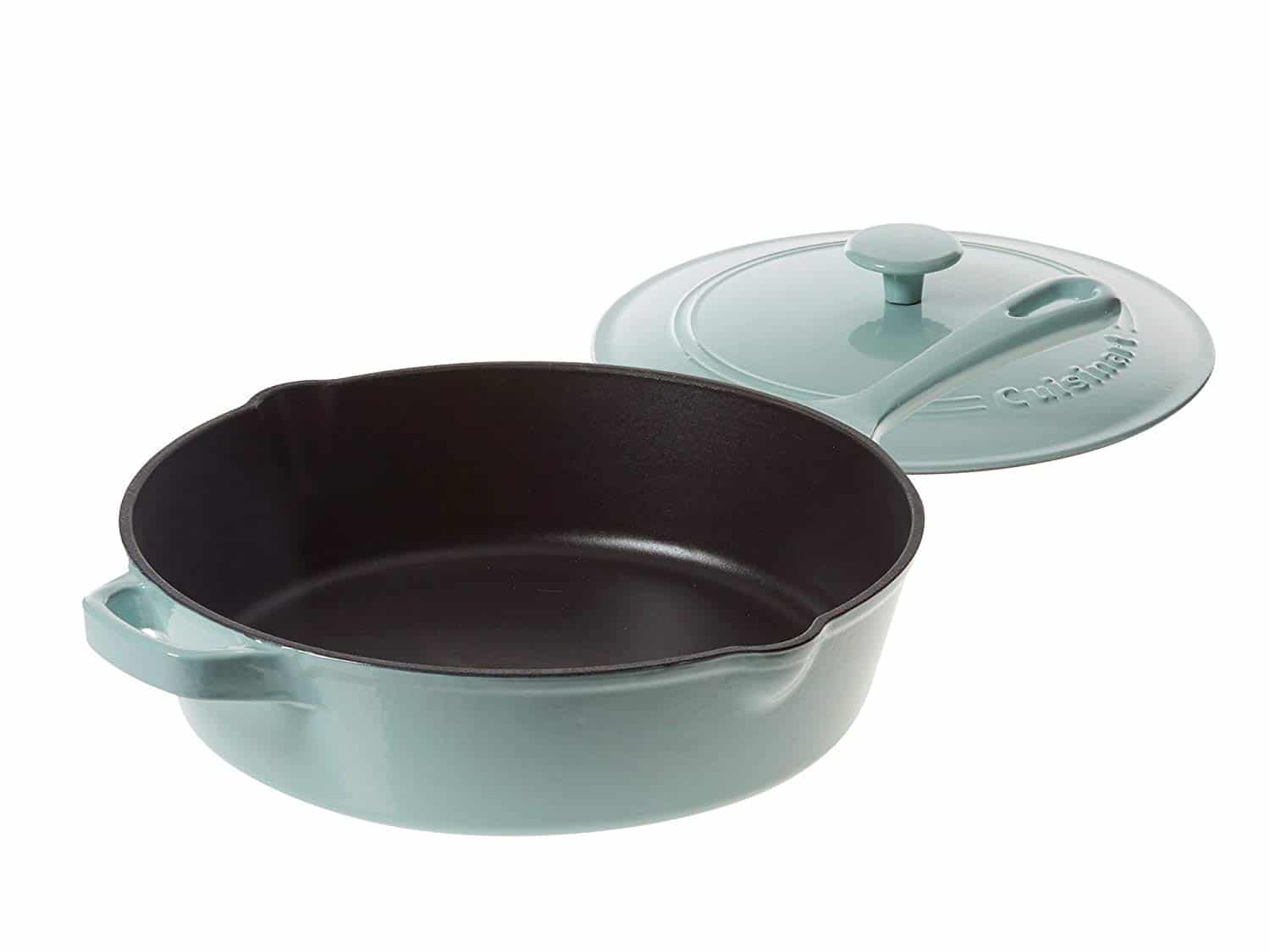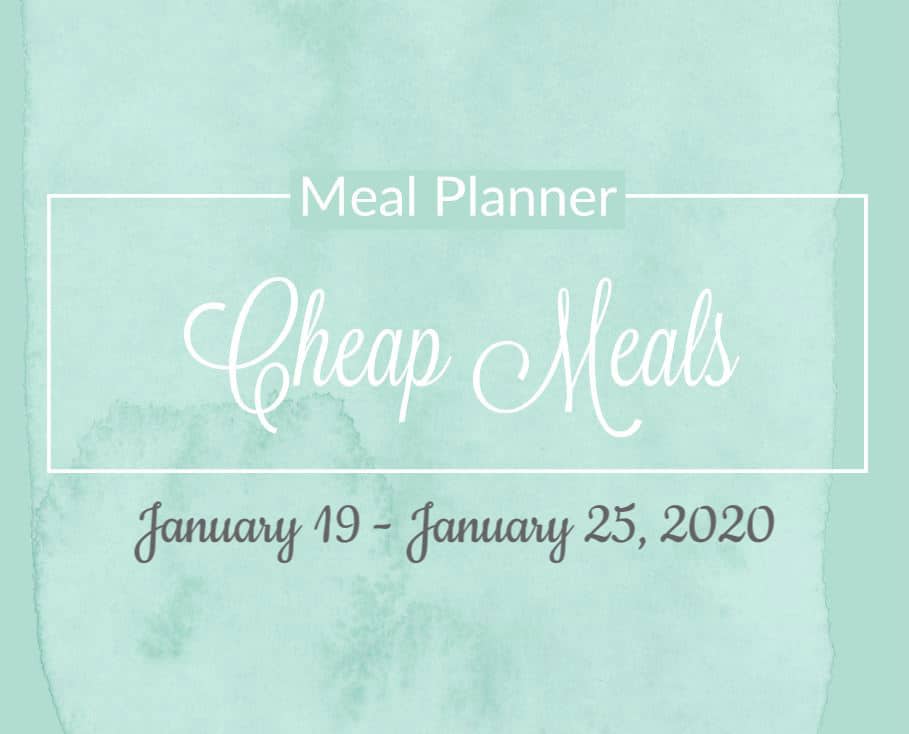Real Food on a Realistic Budget
Do you struggle with wanting to eat healthier but just do not know how to do it on your current budget?
I have two main complaints about eating healthily:
- Processed foods are often cheaper than “real” food.
- Processed foods are less time-consuming to feed the family.
Do you have the same complaints? When you have a large family, and especially if you have boys, they eat a lot! Food can be a big expense, and it’s a challenge to make “real food” (aka, healthy food) on a realistic budget. But I am learning, a step at a time, how to make real and healthy food regularly and still not break the bank.

I want to share with you four ways to eat healthily, yet with a realistic budget. Additionally, we stick to “real food” varieties. Let’s jump into these practical ways to make the practice of eating healthier less frustrating and more doable, even for large families.
1) Create a Realistic Budget
Rarely does someone like to budget, but if we are to be good stewards of what God has given us, then sometimes budgeting is in order.
Watch your spending habits closely for one month. Track everything (not just food). Use an easy financial planning system like this one from The Homemaker’s Companion. Or, if you prefer paper and pencil, use a physical budget planner. There are also plenty of budgeting apps you can use to track where your money is going.
At the end of that month, assess with your spouse what can be reduced in your day-to-day expenditures.
Once you can see what money you realistically have to work with, you can then decide what your food budget is going to be. If you find yourself unable to stick to a budget, you may need to keep money in cash and put it in an envelope.

Once that grocery money is gone, it is gone!
It is then time to get creative in the kitchen with what you have in the pantry and freezer. You would be amazed at what you can find to throw together when you are hungry and cannot go to the grocery store.
2) Create a Menu Plan
You won’t get very far in sticking to your food budget without a menu plan. You can do this one of two ways…
- The Standard Menu Plan – This is great for the extra organized person (a.k.a. not me). This person sits down at the beginning of the week or month and works out what she wants to make for each meal, what ingredients are needed, and what her shopping list is.
- The Backwards Menu Plan – This type of menu plan is not just for the more unorganized person, but it is also great for those shopping sales or who might be part of a weekly produce co-op. On this menu plan, you do your grocery shopping first and make your menu plan second based on your purchases.
I think that a combination of the two of these would save you the most money. If you have a general idea of all the meals you want to make before going to the store, you won’t be tempted to buy something you do not need, but if you see some produce on sale, you have the flexibility to change your menu plan later.
3) Learn to Save on Produce and Meat
I find that it’s the fresh produce and meat that gets me whenever it comes to my budget.
- Buy “In Season” Produce: Purchasing “in season” produce at the grocery store will help you maintain a realistic budget. I noticed this winter that an avocado was nearly $2, but in the summer can drop down to $1 or less, so save the guacamole recipe for the warmer seasons!
- Plant a Garden: If you can, please plant a garden. Gardening as a family is a great educational tool. Not only does gardening teach self-sustaining life skills, but it also teaches responsibility and healthy nutritional habits, and it opens up doors to bring your school outside by fostering nature study, science lessons, math in the garden, and more.
- Frequent Co-ops and Support Local Farmers – Some areas have local produce co-ops. Often, you can find a local farmer to purchase meat, dairy, and eggs from. If you are not sure where to find these farmers, search the internet or even ask in a local Facebook group. People know people.

4) Try to Be Flexible
This is where we need to talk about priorities. When you are on a “real food” or “clean eating” diet, the talk is always about whether you should buy organic, non-GMO, etc.
Obviously, if you have a food allergy or other pressing health issue, then that is the priority, but sometimes we have other things that may be important, but not “break the budget” important. It is crucial that you think hard about this one, and learn to be flexible when it comes to being a good steward of both your income and your body. This balance will assist you in keeping a realistic budget.
For example, if your husband is unemployed or you are a single mom, or going through a rough financial time, you have to pick and choose what you are going to do with food for your family and leave the rest to God – and my friend, that is okay!
Food and nutrition can be such a hot topic. We mustn’t let our diet consume us. God provides us with certain means, and we do need to live within those means to honor Him.
I get that some things you just cannot afford, no matter how much you want to. I find it helpful to prioritize or create a “wishlist” of what you would like to purchase if you have the money.
It is important to be flexible.
Making Food Easily with a Realistic Budget
I think one of the worst hurdles for me to overcome with eating healthier is that it takes more time to make my food. Life is busy enough as it is, right? With parenting, homeschooling, and sometimes working or even a home-based business. Extra responsibilities do not come with extra time.
Crockpot meals are terrific options to save time while still eating healthily. Here are a few tasty but simple crockpot ideas:
- Crockpot Chicken and Pork Recipes
- Garlicky Crockpot Roast Beef Sandwiches
- Crockpot Potato Soup
- Beef Stroganoff in the Crockpot
- Crockpot Sausage Chili
Do you have any ideas that are not mentioned here that help you save time and money when it comes to eating real food on a realistic budget? We would love to hear them!










